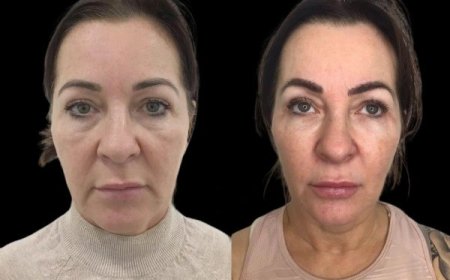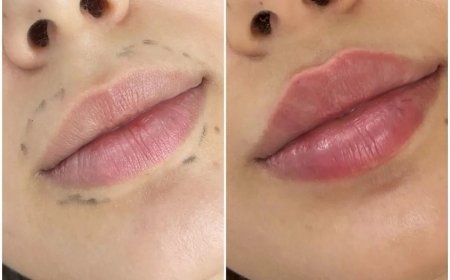Is Anxiety a Mental Illness? Understanding, Managing, and Thriving in 2025

Have you ever asked yourself, is anxiety a mental illness? Anxiety is a natural human responsea warning system designed to keep us safe. But when anxiety becomes persistent, intense, or interferes with daily life, it may cross the line into a diagnosable mental illness. In 2025, Londons fast-paced lifestyle, digital saturation, and heightened expectations mean that more people are asking: when does anxiety stop being normal and start being a disorder? And just as importantlywhat can we do about it?
Lets explore the nature of anxiety, its modern manifestations, and evidence?based strategies to tackle it head?on.
1. What Is Anxietyand When Does It Become a Disorder?
Anxiety is our bodys innate fight, flight, or freeze response. A certain amount of anxiety keeps us alert and motivated. But when anxious thoughts dominate our mindsor when physical symptoms like racing heart, sweaty palms, or insomnia become chronicthats when it may be time to recognize anxiety as a mental illness.
Signs that anxiety may qualify as a disorder include:
-
Persistent worry lasting more than six months
-
Difficulty controlling anxious thoughts, even when aware theyre exaggerated
-
Significant physical symptoms (e.g., muscle tension, headaches)
-
Impaired daily functioningavoiding work, social, or family obligations
In London and other urban settings, these symptoms can intensify under constant pressurejust as a 2025 mindfulness?based counseling article from Bliss Therapy suggests.
2. Modern Stressors: Why Anxiety Feels Bigger in 2025
Digital Overload
Social media, notifications, news alertsthese constant stimuli trigger stress responses, increasing cortisol levels and setting anxious thought cycles into motion.
Work & Pace of Life
Remote work, rapid deadlines, economic uncertaintyall contribute to sustained tension. Wearable devices now even track stress peaks and sleep disruptions, reminding us just how physically taxing our minds have become.
3. Five Proven Strategies to Reduce Anxiety in 2025
Inspired by the principles in the London-focused pathway to "abolish your anxiety," here are five research?backed approaches (with citations):
3.1 Mindfulness & Meditation
Anchors us in the present, reducing cortisol and quieting racing thoughts. Even 1020 minutes dailythrough apps like Calm or Insight Timerhelps rewire stress responses.
3.2 Physical Activity
Exercise triggers endorphins, lowers stress hormones, and improves mood. Whether brisk walking, yoga, dancingor even micro?workouts during work breaksmovement is powerfully therapeutic.
3.3 Limit Digital Overload
In designating screen?free zones (like an hour before bed) and utilizing Do Not Disturb modes, we allow our minds to restbreaking free from constant alerting systems.
3.4 Build a Support Network
Human connection matters. Whether virtual therapy, support groups, or time with friends, sharing your experiences grounds anxious thinking and fosters belonging.
3.5 Sleep Hygiene & Restorative Practices
Getting 79 hours of quality sleep is fundamental. Calming pre?sleep routinesno screens, deep breathing, readinghelp the mind decompress and recover.
4. Additional Effective Tools from London Experts
4.1 Cognitive?Behavioral Techniques
CBT helps challenge distorted beliefs: If I dont answer every email, Ill fail. Recognizing these thought patterns is a powerful step toward emotional control .
4.2 Progressive Muscle Relaxation
Tensing and releasing each muscle group reduces bodily holding patterns of anxiety. Just 510 minutes nightly can improve calm and promote restful sleep.
4.3 Nutritional Support
Balanced mealsrich in protein, healthy fats, complex carbsstabilize blood sugar, as do omega?3s and magnesium-rich foods like leafy greens and nuts.
4.4 Structured Worry Time
Set aside 1530 minutes daily to journal about worries. Outside of this slot, jot them down and defer them. This containment reduces their intrusiveness.
5. Self?Compassion: The Unsung Hero
Lastly, remember that tackling long?standing anxiety takes time. Results arent instantand thats okay. Celebrate the small steps: you meditated, you went for a walk, you limited screen time. Celebrate your progress, not perfection. Self?compassion breeds resilience and helps sustain your wellbeing journey.
Sois anxiety a mental illness?
The answer: Yes, it can bebut not always. Feeling anxious in stressful times is normal. Anxiety becomes a mental illness when its:
-
Long?lasting (6+ months)
-
Physically and emotionally debilitating
-
Interfering with everyday life
But heres the empowering part: anxietyeven as a disorderis treatable and manageable. And as weve explored, 2025 London?inspired strategiesmindfulness, movement, digital boundaries, community, sleep, nutrition, tools like CBT and worry journalsoffer a comprehensive toolkit.
Final Takeaway
So, is anxiety a mental illness? It depends on its severity and impact. But whats far more important: it doesnt have to manage you. Embrace consistent, healing habits, be kind to yourself, and reach out for support. With the right approach, you can reclaim calm, clarity, and balanceeven in our fast?paced, modern world. You deserve peaceand you can build it, step by step.






































